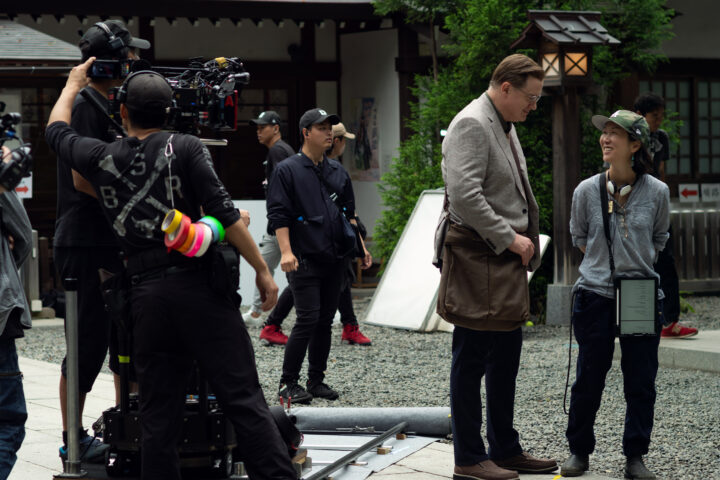It’s a very rare movie that presents a character you want, above all costs, to be happy. And What Maisie Knew, the moving new adaptation of Henry James’ 1897 novel of a young girl in peril, is such a film. In the center of a failing marriage we meet a six-year-old child in need—smart, observant and kind—and then witness cruelty and neglect visited upon her by her narcissistic, damaged parents, behaviors so insidious as to be ravaging. Just when it feels too painful to endure, two unexpected saviors appear at the right time and in the right place, each with their own issues.
So delicate and observant is What Maisie Knew that not a whiff of these symmetries feels contrived, the entire experience ringing with emotional authenticity. At times the tension, ratcheted up by directors Scott McGehee and David Siegel (The Deep End) in near-perfect, tick-tock calibration that reminded me of other family time bombs like Shoot the Moon and Ordinary People, nearly brought me to tears. This is, simply put, one of 2013’s best, featuring one of the most natural performances by a child ever put on film in young Onata Aprile, a wide-eyed, sensitive wisp of a girl who carries the movie on her tiny shoulders.
In a razor sharp screenplay by Nancy Doyne and Caroll Cartwright, Julianne Moore and Steve Coogan are affluent, upscale Manhattanites whose marriage is imploding. Susannah (Moore) is an aging rock star on the other side of her glory days while Beale (Coogan) is a successful art dealer, and as the picture opens their nonstop verbal tirades—they viciously deconstruct each other in scenes from a broken marriage—are at a fever pitch of violence and tension.
Both parents are consumed by their own lives and professions and barely notice young Maisie (Aprile), usually hiding in a corner somewhere listening to them use her as a bargaining chip, the divorce and custody a game of one-upsmanship and the girl is shuttled between them all over New York City, usually with neither showing up to retrieve her from school.
When both parents remarry in transparent attempts to appear more “stable” to the court and gain full custody (neither really wants Maisie, each just wants the other not to have her), enter handsome bartender Lincoln (Alexander Skarsgard) and former family nanny Margo (Joanna Vanderham), both of whom become ensnared in the parents’ scheme. Maisie sees a playmate and possible surrogate father in caring Lincoln and maternal warmth from Margo, a Scottish immigrant in need of a friend. There are fascinating dimensions at play as Maisie recognizes their needs and sees, for the first time, a healthy, developing family, one that actually likes each other—unconditionally. So in addition to its precise study of a young child’s loss of innocence, this timely movie clearly addresses notions of a non-traditional family, specifically what makes one when biology isn’t sufficiently capable.
The cast is impeccable in difficult roles. Coogan gives us a father who recognizes his own parental deficiencies but is powerless to change them, and Vanderham is touching as the default caretaker who sees a need and tries to help correct a wrong. But the film’s most surprising performance comes from Skarsgard, the most handsome of stars, who here and in this year’s Disconnect, where he played a cuckolded husband on the skids, conveys an open sensitivity that really brings us, and Maisie, close.
Susannah is a quintessential Moore neurotic and one of her best in a career of embarrassing riches. The actress, who has never won an Oscar, takes what could have been a one-note monster, instead infusing her with a desperation this side of tragedy. She “loves” Maisie, but only in the most immature and codependent of ways (wildly extravagant gifts, junk food slumber parties, tour bus rides), a perverse, cathected need for a confidant rag doll to love her, and only her, on cue. It’s a risky role that could have veered into outright villainy, but the actress somehow makes the character’s limitations and manipulations something to see, particularly in her revelatory final scene.
What Maisie Knew stands next to Kramer vs. Kramer as one of the finest movies about divorce and its impact on a child. It’s a heartbreaking, important picture.
4 stars.



